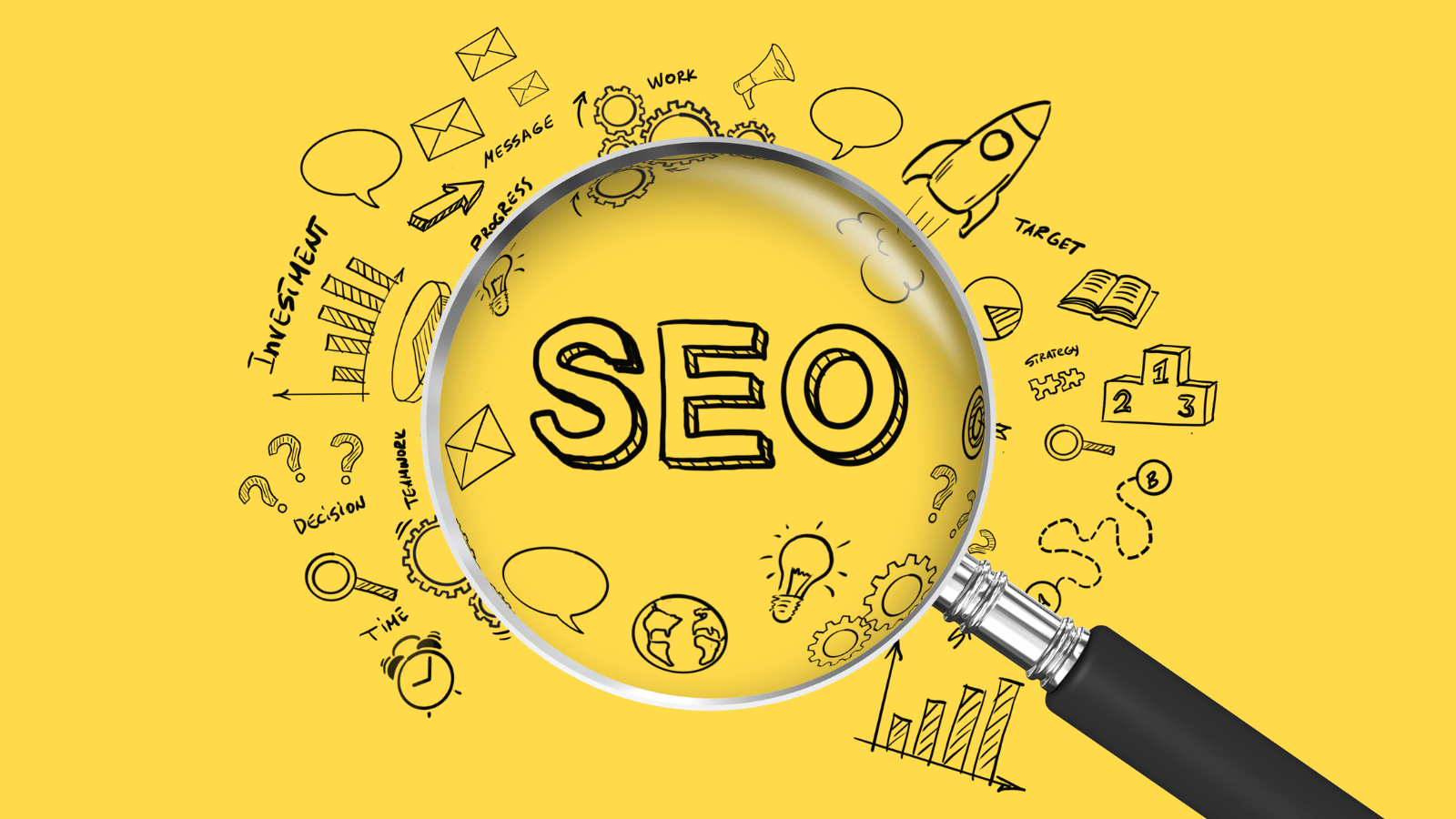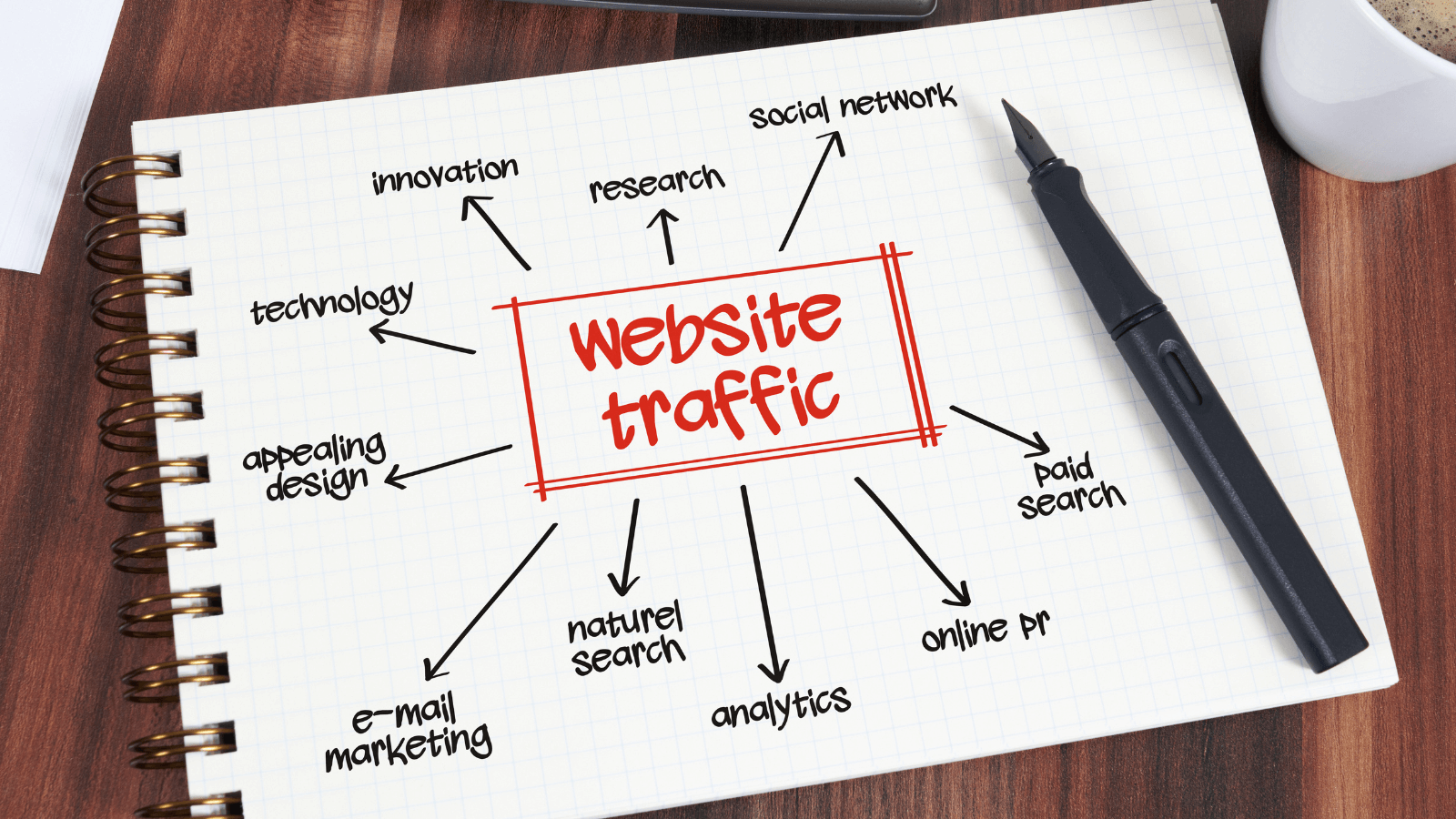Best SEO Websites to Boost Marketing Efforts [2025]
Search engine optimization (SEO) is a cornerstone of digital marketing strategies for businesses large and small. It positions brands as the answer to users’ queries and pain points, with well-optimized brands appearing higher in search engine results pages (SERPs) like Google, Bing, and Yahoo.
SEO (and digital marketing in general) is constantly evolving. That means staying on top of SEO trends, algorithm updates, and more is critical for success in today’s digital landscape. Some of the best ways to stay on top? Knowing the right resources, including the best SEO websites for research and website building, as well as the best SEO tools.
5 Best SEO Website Examples to Get Inspired & Grow Your SEO Knowledge Base
The following websites are winning on two fronts: they’re well-optimized for SERPs (so you can see first-hand what SEO done right looks like) and they help digital marketers get valuable insight into ever-evolving industry trends.
5. Semrush
Website: https://www.semrush.com/
Is it a tool? Is it a resource hub? It’s both! Semrush offers AI-powered marketing tools as well as an in-depth blog covering topics from SEM to PPC to beyond. Free offerings include SEO audits and keyword research tools. Paid plans offer functions like ChatGPT Search Tracking, competitor analysis, GBP optimization, campaign launching, and more.
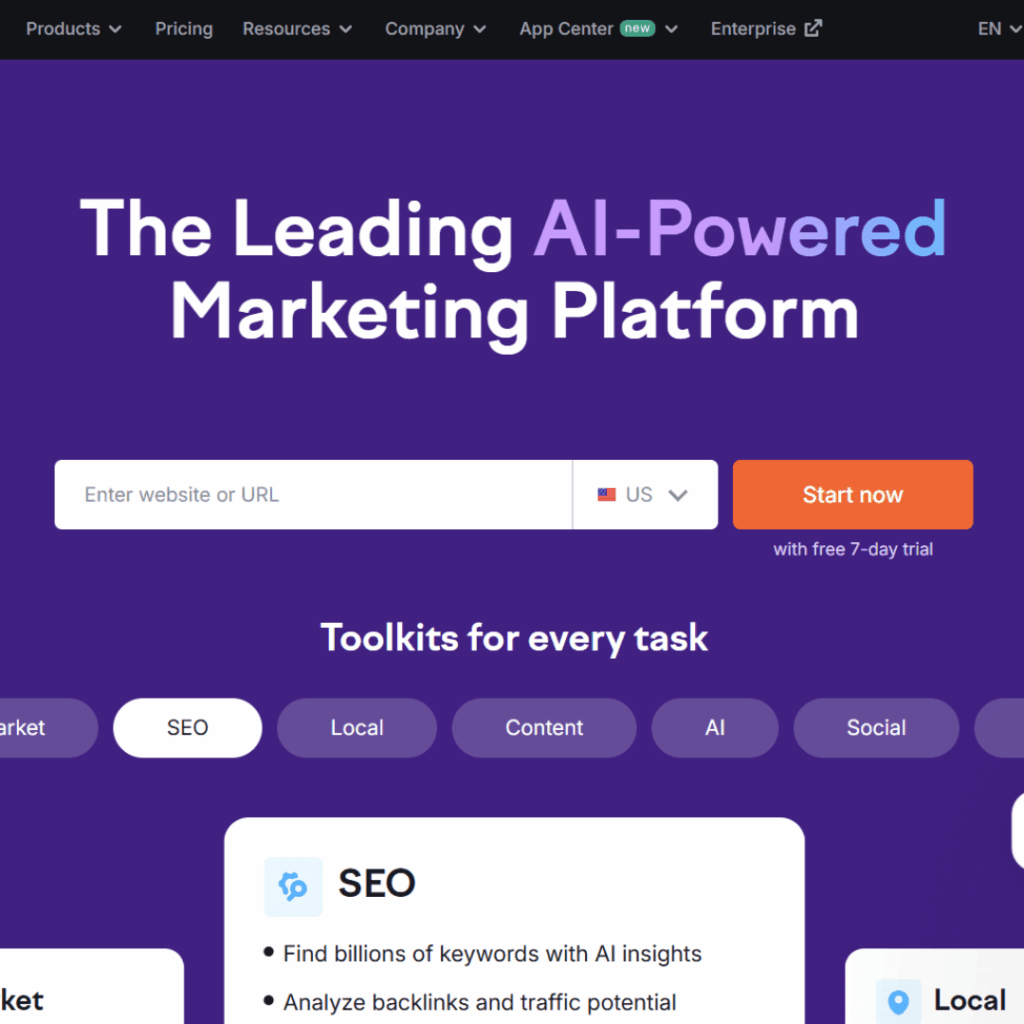
4. Search Engine Land
Website: https://searchengineland.com/
Search Engine Land is firmly established as a trusted industry resource for all things digital marketing. That means plenty of news about the latest Google updates, tips for cost-effective changes for Google Ads campaigns, and much, much more. Articles from industry experts are published every day, so you can always count on up-to-date, authoritative information.

3. Search Engine Journal
Website: https://www.searchenginejournal.com/
SEO, tutorials, and search marketing news… oh my! All this and more can be found on Search Engine Journal, another industry giant for information resources like step-by-step technical SEO guides and Gemini updates.
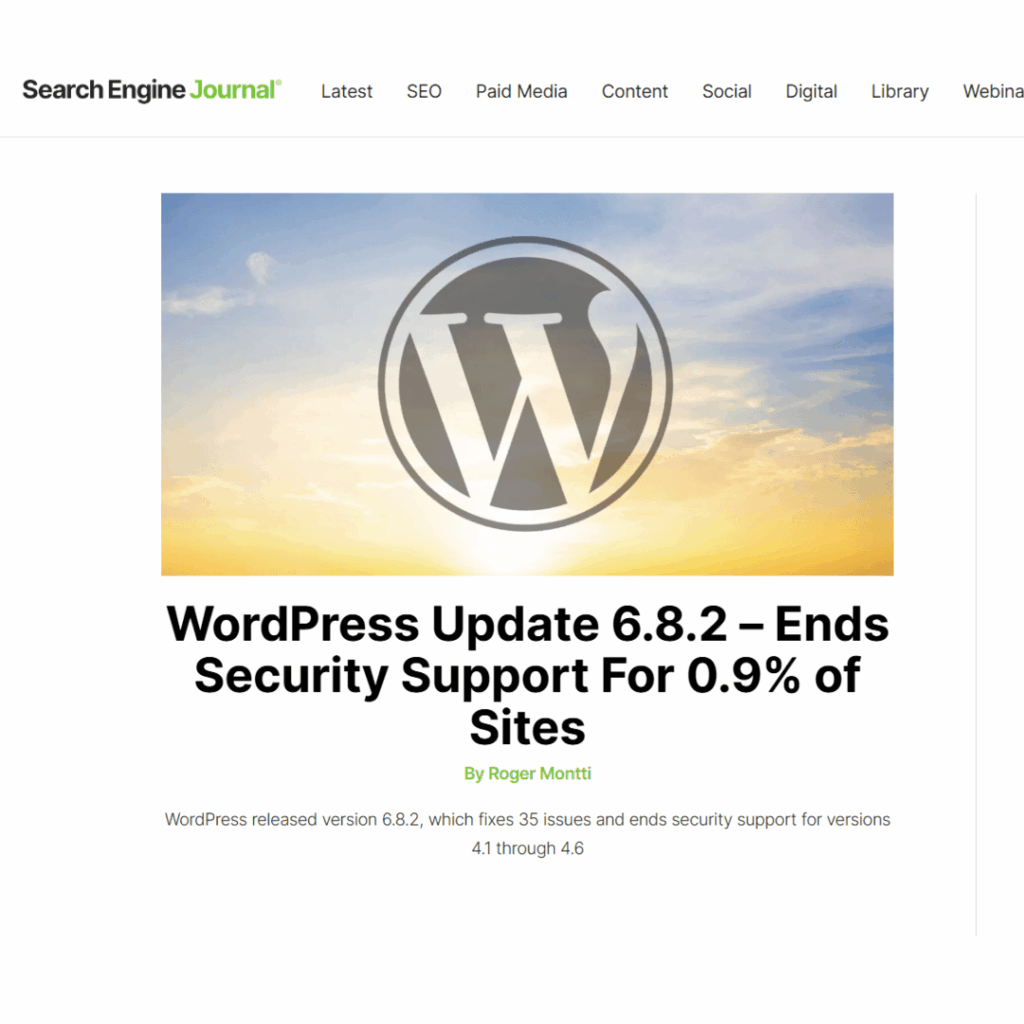
2. HubSpot
Website: https://www.hubspot.com/
HubSpot has it all for digital marketers: software, tools, a blog, AI-powered assistants, and more. Popular products include scalable content marketing and customer service software. Paying customers aren’t the only ones who get goodies, though. HubSpot offers plenty of free tools to users, including an AI Search Grader and Email Signature Generator.
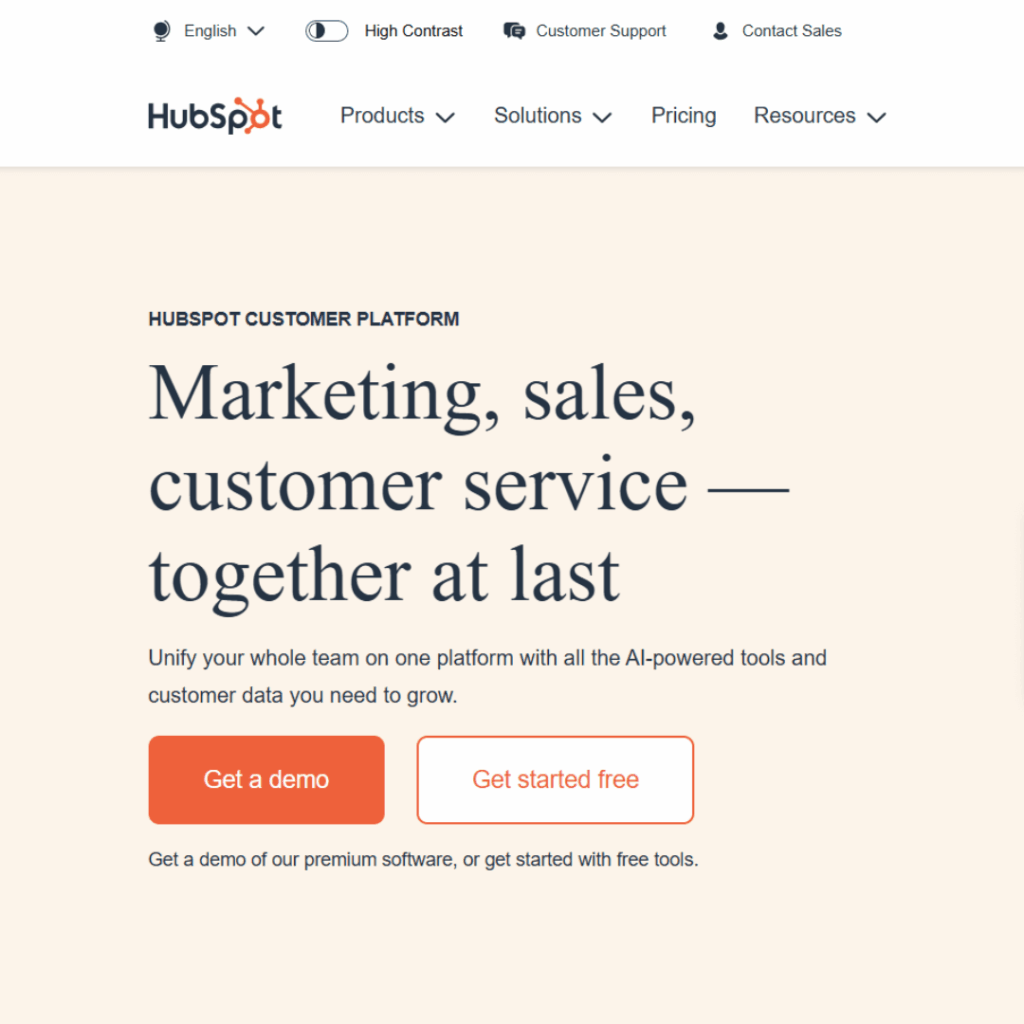
1. Digital Strike – Targeted Marketing
Website: https://www.digitalstrike.com/
For expert insight into search engine optimization, content marketing, and more, there’s no better place to go than Digital Strike – Targeted Marketing. We’re dedicated to delivering real results to clients with data-driven strategies customized to fit each one’s unique industry, vertical, and target channels.
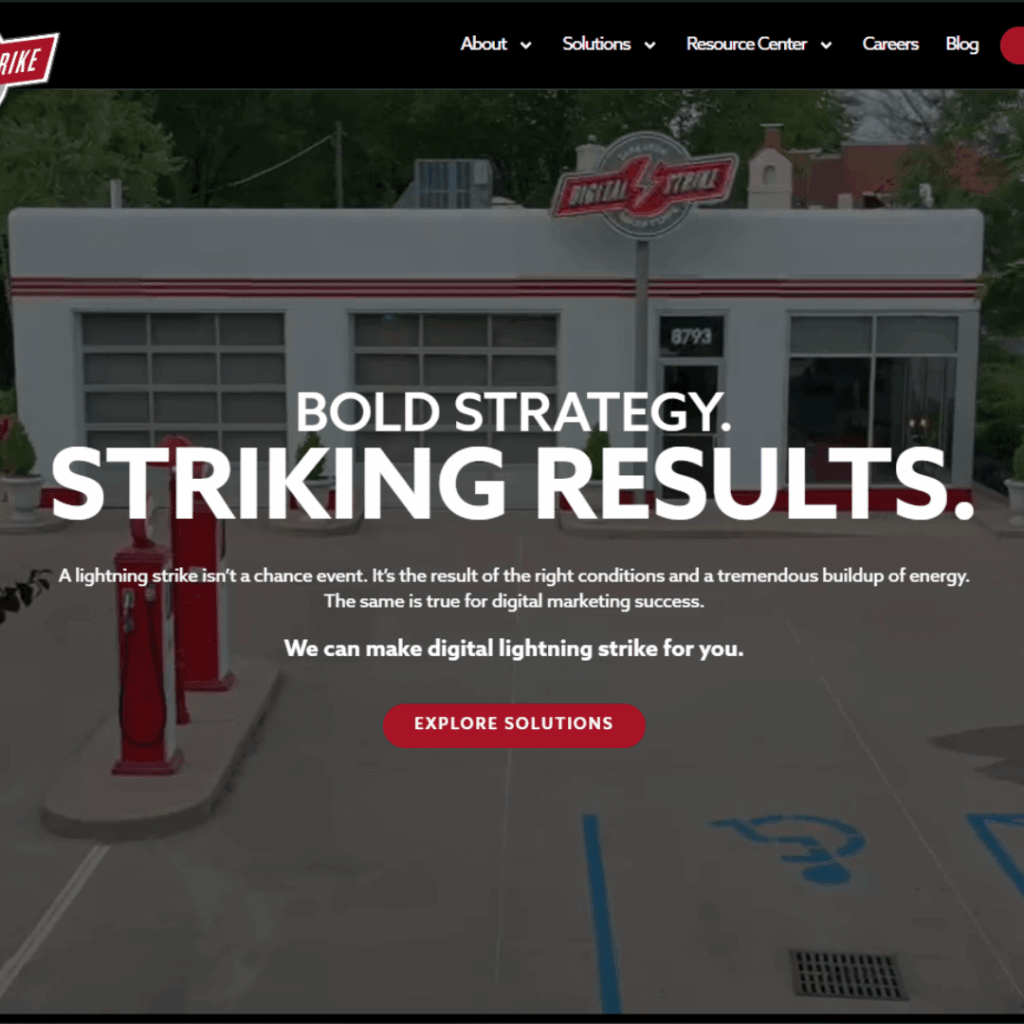
5 Best SEO Website Builders for Beginners
You don’t need to be a web developer or have knowledge of Javascript to create a new website (at least when you use the following SEO-optimized website builders).
5. Webflow
Website: https://webflow.com/
Webflow is the tool helping visual creatives create websites that look great while still implementing best SEO practices. It’s a great way to keep real people and search engines happy.
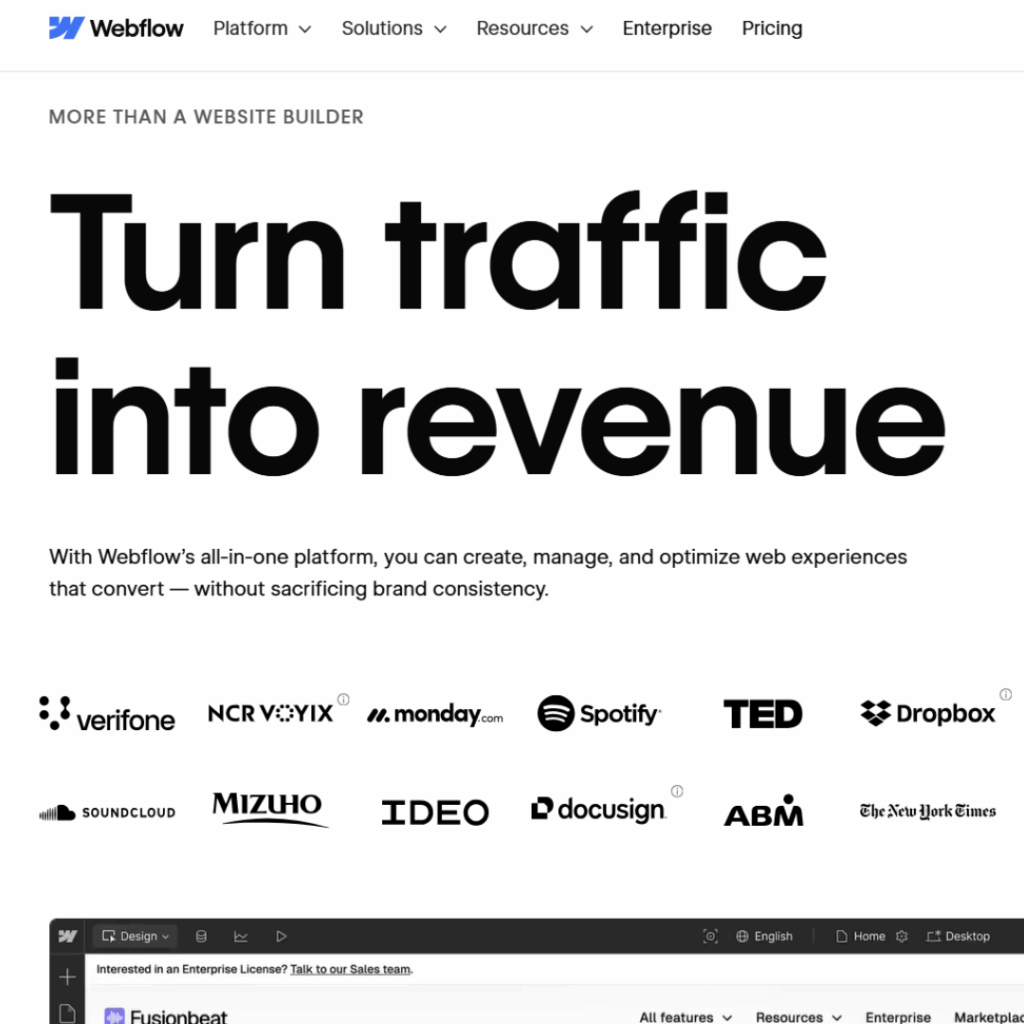
4. Wix
Website: https://www.wix.com/
Wix is easy to use and can create visually stunning sites that perform well in SERPs. Best of all, it offers a free plan that helps small business owners with shoestring budgets get up and running.
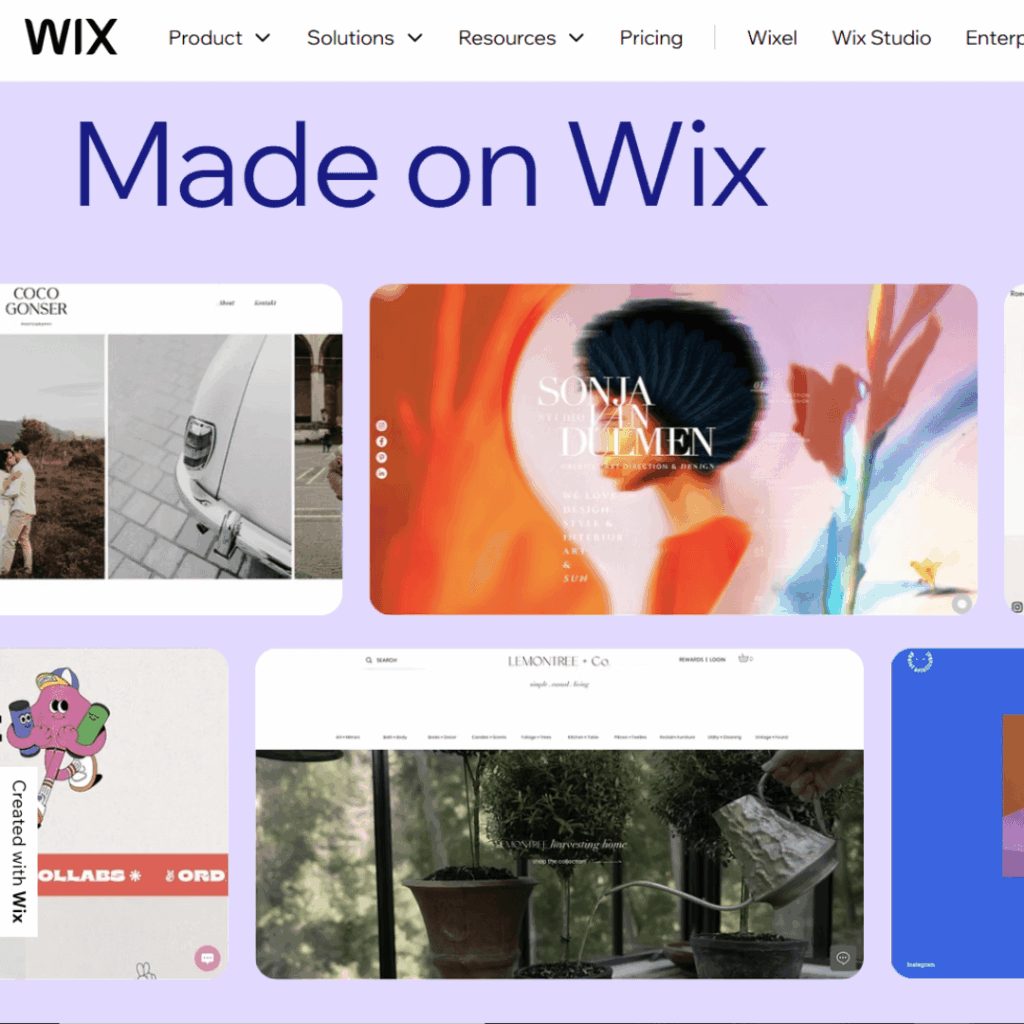
3. Squarespace
Website: https://www.squarespace.com/
Squarespace is another user-friendly site builder that offers an incredible variety of website templates, most of which offer great integration with social media, Google Business Profile (GBP), and other channels and software.

2. Shopify
Website: https://www.shopify.com/
If you’re an ecommerce business, Shopify makes it easy to create well-optimized product pages that are easily shared across all channels—all without sacrificing site performance or search engine result rankings.

1. WordPress
Website: https://wordpress.com/
There is perhaps no more user-friendly website builder/content management system available than WordPress. Content creation? Easy. Social media? Incredible integration options. Plugins? You’ll never want for lack of options.

5 Best SEO Tools & Software for Your Toolkit
Success online depends in part on the tools at your disposal. The following are great additions to your SEO toolkit.
5. Moz
Website: https://moz.com/
For large and small businesses alike looking for an accessible all-in-one tool, it’s hard to beat Moz. Popular tools that are part of the Moz Pro plan include keyword research tools, rank-tracking tools, and on-page SEO content graders. Moz API also makes software integration easy and SEO-friendly.
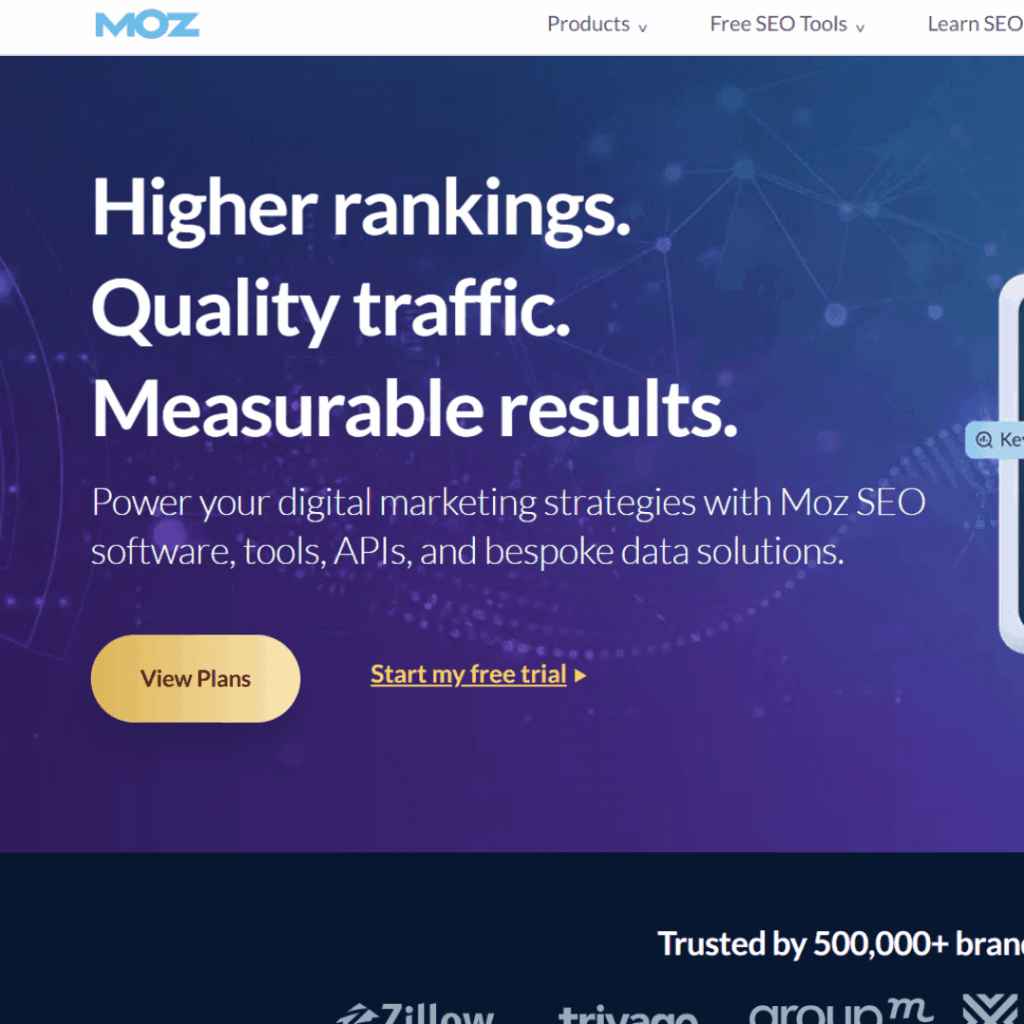
4. Google Analytics
Website: https://analytics.google.com/analytics/
All website owners need to make use of Google Analytics; there is no better source of authority for Google Search result metrics (organic search and paid traffic alike).
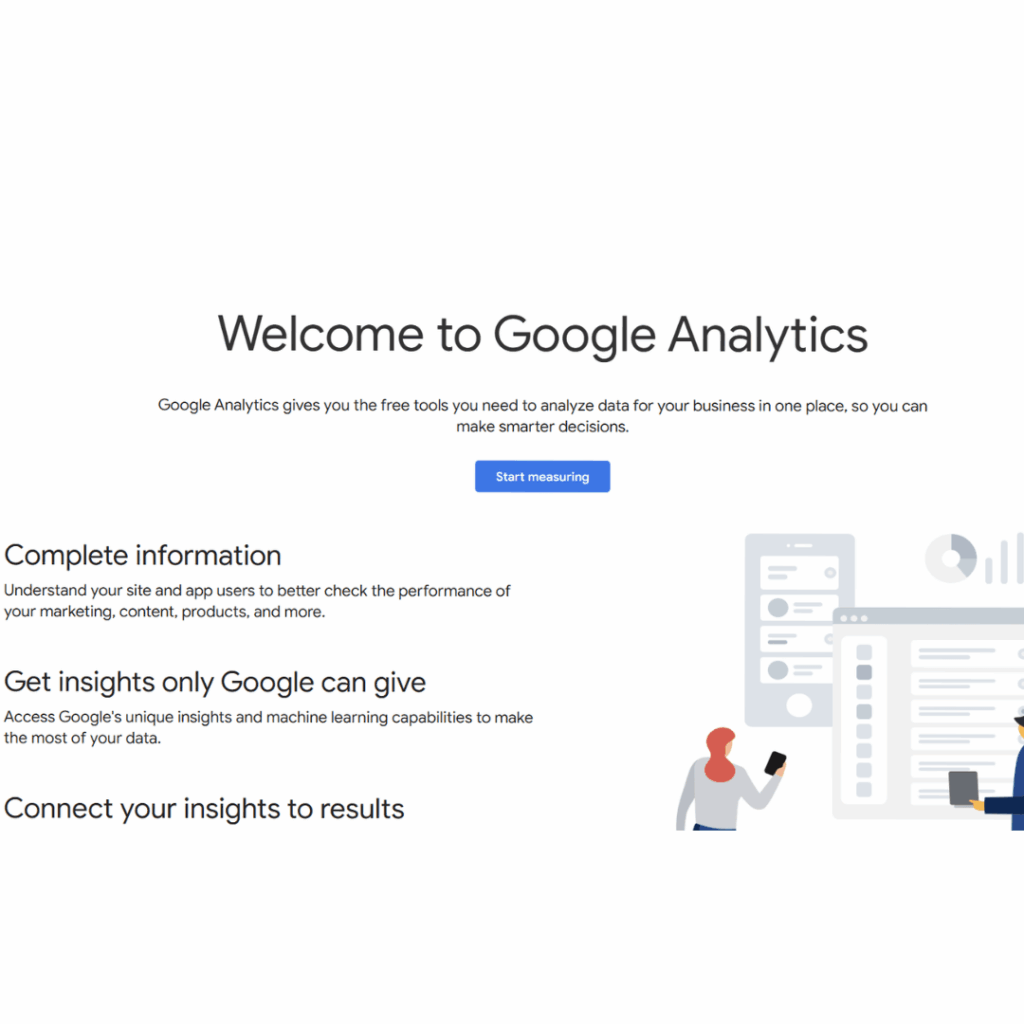
3. Ahrefs
Website: https://ahrefs.com/
When it comes to in-depth research, Ahrefs can’t be beat. Tracking organic traffic, website rankings, and keyword ranks along with finding relevant keywords and gaps in content (along with much more) is where Ahrefs shines, offering tools for quick comparisons and finding data points to develop and implement a comprehensive SEO strategy.

2. Screaming Frog SEO Spider
Website: https://www.screamingfrog.co.uk/seo-spider/
I scream, you scream, we all scream for Screaming Frog. Screaming Frog SEO Spider is a technical SEO website crawler tool that helps users fix technical issues like broken links and find other places to grow, like link-building opportunities.

1. Yext
Website: https://www.yext.com/
Yext is the tool for local business listing and multi-location business management. It allows you to keep a consistent brand message across all channels, including AI tools. That’s right: Yext ensures that not just traditional business directories have your information right, but AI tools too.
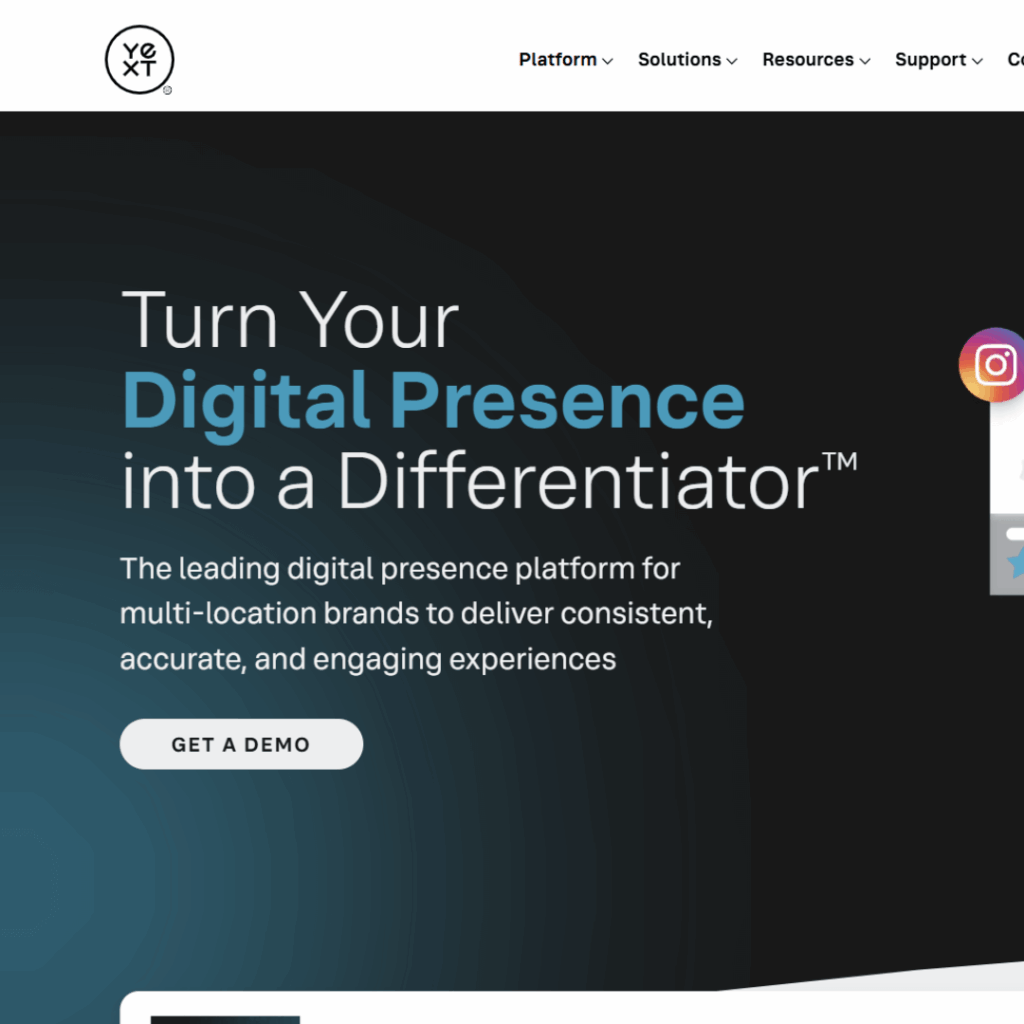
Website SEO FAQs
Which type of website is best for SEO?
Popular options for SEO-optimized websites include:
- CMS (content management systems) like WordPress
- Website builders like Wix
- Custom-built websites
Is Wix still bad for SEO?
No, Wix is not still bad for SEO. It has vastly improved its software and integrations to improve SEO-friendliness of Wix-created and hosted sites.
Is SEO worth it anymore?
AI-generated overviews are increasingly dominating search engine results. Many users now rely solely on these summaries and skip clicking through to actual websites. This shift has significantly reduced organic traffic for even well-optimized sites, prompting some to question the relevance of SEO in a zero-click search landscape.
However, SEO still matters. Perhaps more than ever.
Search engine visibility remains critical, both in traditional organic results and within AI-generated overviews. Large language models (LLMs) generate these summaries using high-ranking content, meaning that SEO-friendly pages are more likely to be cited.
Appearing in AI overviews increases your chances of earning a citation, which can still lead to clicks. Even when it doesn’t, it enhances brand visibility and authority online.
What is the best SEO tool?
The best SEO tool depends on your goals:
- Best overall: Google Analytics
- Best for keyword research: Ahrefs
- Best for technical SEO: Screaming Frog
- Best for local listing management and AI overview control: YEXT
- Best for website speed testing: Google PageSpeed Insights
- Best for compressing images: TinyPNG
Which is the best SEO website builder?
The best SEO site builder depends on your goals and vertical:
- Best overall: WordPress
- Best for ecommerce brands: Shopify
- Best free option: Wix
What are backlinks?
Backlinks are external links that go from another website to your site, helping you gain valuable visibility, referral traffic, and more.
What elements of SEO that affect site performance and SERP rankings?
Technical, local, and other SEO aspects that affect site performance and SERP rankings include:
- Quality content. Your site might have a lot of content with relevant keyword mentions designed to capture lots of queries, but is the content good? If not, your site can suffer. A core aspect of SEO is not just having content, but high-quality content. That means no keyword stuffing and plenty of well-researched, insightful resources.
- Quality backlinks. Backlinks are still an important ranking signal for Google Search and other search engines. Traditional marketing wisdom said that backlinks were how search engines determined the authority of a page, with high-quality backlinks (links from high domain sites to your site) telling Google that your site was worth trusting. That’s still true to an extent; backlinks are important because they can help you build brand awareness, drive website traffic, and help search algorithms understand page relevancy to user queries.
- Consistent NAP. NAP means “Name, Address, Phone Number.” This information is vital for local businesses with a physical location to have consistent across their website, Google Business Profile (GBP), and directory listings. For example, if an address is listed as “123 Highway Hwy” on GBP, it should not be listed as “One-Two-Three Highway Highway” on Yelp.
- Mobile optimization. Roughly half of all online searches take place on mobile. That means your website needs to be optimized not just for people on desktops, but also people using mobile devices like cell phones.
- Site speed. Nobody likes waiting. Google recommends pages load in under 3 seconds. If your pages take longer to load, not only will Google penalize your site with lower rankings, but human users will be more likely to leave your webpages without converting. Image optimization, removing bloated plugins, and more can all help reduce page load times.
- User-friendly design. A good user experience hinges in part on a user-friendly design, or a website design that makes navigation easy for site visitors.
- XML sitemap. An XML sitemap is a document you submit to Google Search Console to help Google better understand your site structure, page relevance to user queries, and generally make your content more discoverable.
What are the top websites for learning and improving SEO skills?
Some of the best SEO blogs include:
- HubSpot Blog
- Digital Strike – Targeted Marketing
- Neil Patel
What are SEO services?
SEO services are any services that help a brand’s search engine optimization efforts.
They can include:
Need an SEO Expert?
Turning to the best SEO websites is a great way to access tools and resources to launch online marketing campaigns. But executing a fine-tuned SEO strategy is difficult to do alone. It involves a lot of time, resources, and know-how, from launching brand awareness social campaigns to conducting keyword research that matches user intent to creating content that ranks well in SERPs and beyond.
When pulling off that complex of a strategy, it pays to have a team of not just SEO professionals, but also SEO strategists, content marketers, social media advertisers, PPC strategists, and more.
Let’s make digital lightning strike for your campaigns. Contact Digital Strike – Targeted Marketing.
